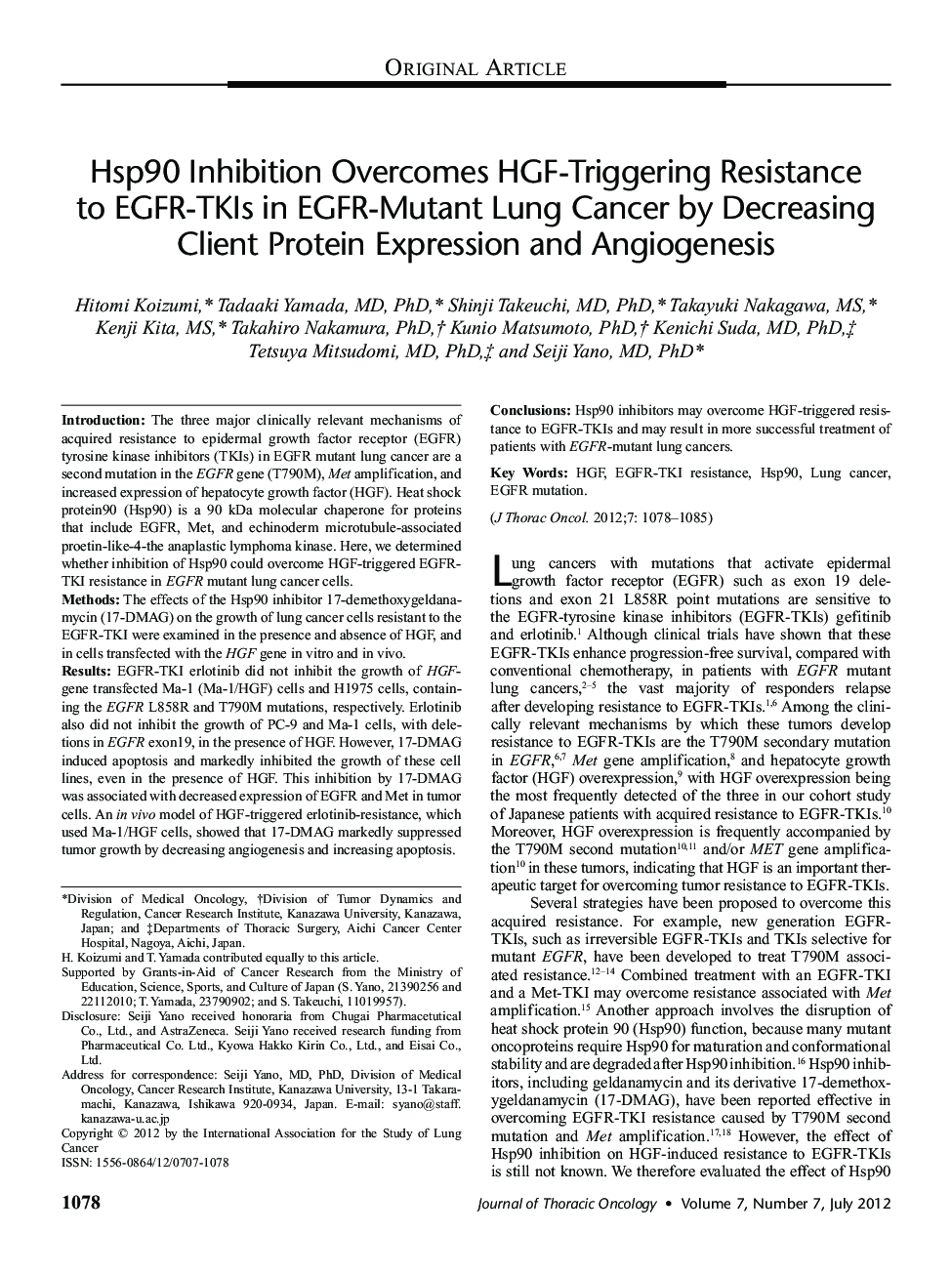| Article ID | Journal | Published Year | Pages | File Type |
|---|---|---|---|---|
| 3990475 | Journal of Thoracic Oncology | 2012 | 8 Pages |
Introduction:The three major clinically relevant mechanisms of acquired resistance to epidermal growth factor receptor (EGFR) tyrosine kinase inhibitors (TKIs) in EGFR mutant lung cancer are a second mutation in the EGFR gene (T790M), Met amplification, and increased expression of hepatocyte growth factor (HGF). Heat shock protein90 (Hsp90) is a 90 kDa molecular chaperone for proteins that include EGFR, Met, and echinoderm microtubule-associated proetin-like-4-the anaplastic lymphoma kinase. Here, we determined whether inhibition of Hsp90 could overcome HGF-triggered EGFR-TKI resistance in EGFR mutant lung cancer cells.Methods:The effects of the Hsp90 inhibitor 17-demethoxygeldanamycin (17-DMAG) on the growth of lung cancer cells resistant to the EGFR-TKI were examined in the presence and absence of HGF, and in cells transfected with the HGF gene in vitro and in vivo.Results:EGFR-TKI erlotinib did not inhibit the growth of HGF-gene transfected Ma-1 (Ma-1/HGF) cells and H1975 cells, containing the EGFR L858R and T790M mutations, respectively. Erlotinib also did not inhibit the growth of PC-9 and Ma-1 cells, with deletions in EGFR exon19, in the presence of HGF. However, 17-DMAG induced apoptosis and markedly inhibited the growth of these cell lines, even in the presence of HGF. This inhibition by 17-DMAG was associated with decreased expression of EGFR and Met in tumor cells. An in vivo model of HGF-triggered erlotinib-resistance, which used Ma-1/HGF cells, showed that 17-DMAG markedly suppressed tumor growth by decreasing angiogenesis and increasing apoptosis.Conclusions:Hsp90 inhibitors may overcome HGF-triggered resistance to EGFR-TKIs and may result in more successful treatment of patients with EGFR-mutant lung cancers.
